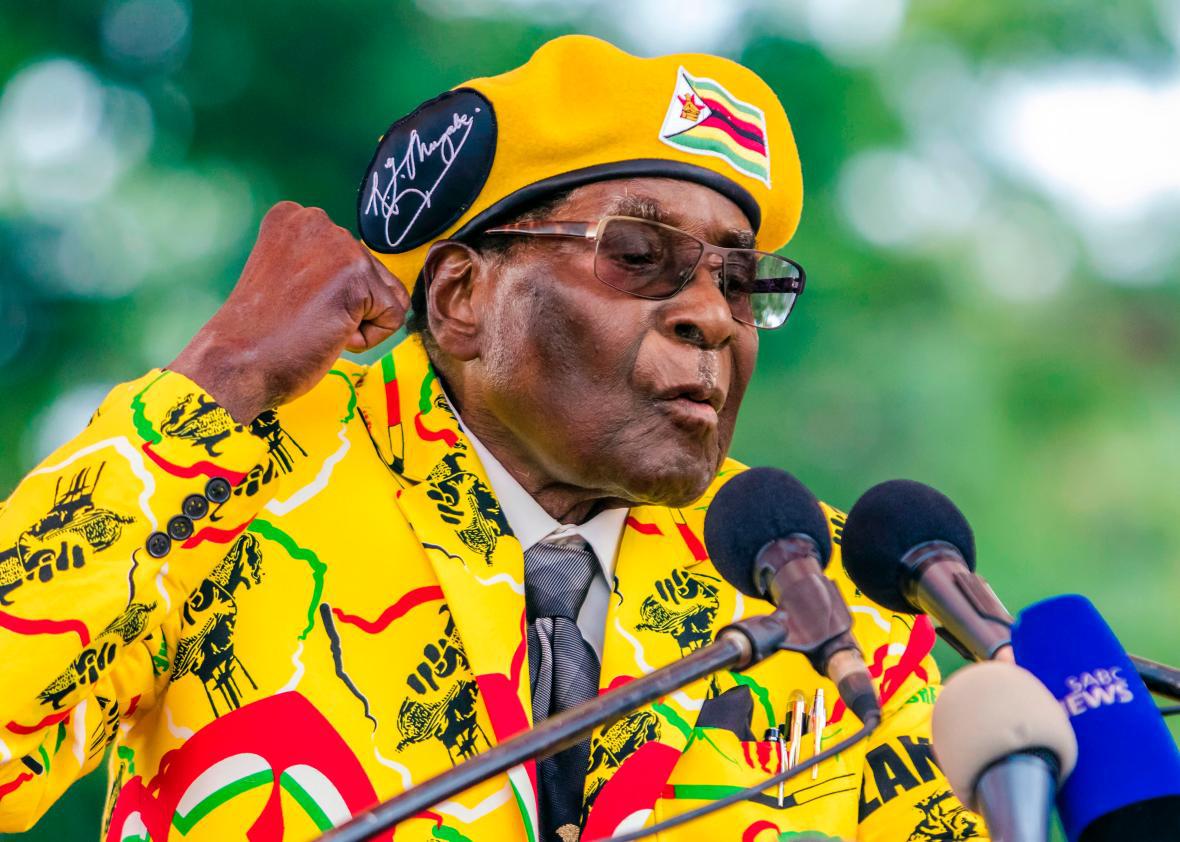Looks like it was a coup after all.
Zimbabwe’s military has put President Robert Mugabe under house arrest after a night of uncertainty and conflicting reports. Mugabe’s confinement was confirmed by South African President Jacob Zuma, who spoke with him by phone this morning.
It is a stunning turn of events for the world’s oldest head of state, who has kept an iron grip on power since Zimbabwe gained independence in 1980.
Zimbabwe’s domestic political opposition is weak and disorganized, and there’s been little international pressure on Mugabe to step down, so the overthrow appears to be mainly the result of a power struggle within the ruling Zanu-PF party. Mugabe has seemed increasingly feeble and erratic lately, and his fatal mistake apparently was attempting to clear a path for his wife, Grace, to become vice president, potentially putting her in line to be his successor. Last week he fired Vice President Emmerson Mnangagwa, who is part of an influential faction within Zanu-PF of veterans of the guerrilla war against white minority rule in the 1970s. Another member of that faction, Constantino Chiwenga, commander of the armed forces, was the one behind the current intervention. Earlier this week, he had accused the party’s youth faction, loyal to Grace, of purging veterans of the country’s liberation struggle.
It’s not quite clear what happens now. A uniformed general appeared on the country’s main broadcaster to deny that the military was taking power, though that’s hardly reassuring.
Despite years of economic mismanagement, autocratic rule, and human rights abuses, Mugabe still has some significant support. The army’s chief of staff was quick to say that the target of their action was not Mugabe but “criminals around him who are committing crimes that are causing social and economic suffering in the country in order to bring them to justice.” It seems plausible that the military could reinstall Mnangagwa, whose current whereabouts are unknown, as vice president while allowing Mugabe to remain as a figurehead. Even so, he would be a vastly diminished figure.
Zuma, who has generally backed Mugabe despite rough patches in the relationship, has dispatched South African envoys to meet with Mugabe and the Zimbabwean military leaders. The South African government warned against “unconstitutional changes of government.” The U.S. government, which maintains targeted sanctions on a number of Zimbabwean leaders including Robert and Grace Mugabe, has not yet commented on the coup, though the U.S. Embassy in Harare encouraged American citizens in the country to shelter in place until further notice. The New York Times notes that Gen. Chiwenga visited China, a close ally of Zimbabwe’s, last week, but it’s unclear if any plans for the takeover were discussed.
